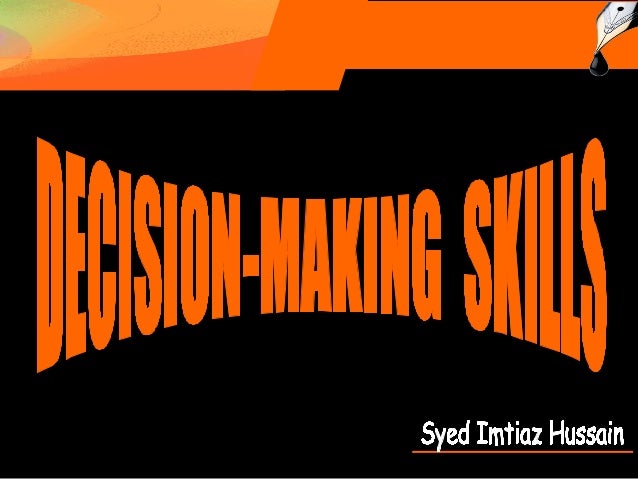Making decisions is a essential skill that shapes our personal and career lives. Each day, leaders are faced with decisions that not only impact their own destinies but also the trajectories of their groups and companies. Mastering the art of strategic decision-making can turn ambiguity into confidence and guide people toward achievement. With the world moving at an unprecedented pace, it becomes ever more important to refine our decision-making abilities, enhancing our capacity to evaluate options, weigh consequences, and act with decisiveness.
Leading figures in various fields exhibit a diverse range of decision-making approaches that motivate and inform us. From employing intuitive insights to relying on analytical analysis, their approaches offer valuable lessons. This article examines the psychology behind effective decisions, provides proven techniques to enhance decision-making abilities, and investigates how to make smarter choices in high-pressure situations. As we discover the complex dynamics of effective decision-making , you'll find useful tools and insights that enable you to handle both everyday dilemmas and critical situations with assurance and lucidity.

Methods for Effective Decision Making
To boost decision making skills, mastering a few key strategies can make a substantial difference. One tested approach is to use decision making structures, which provide a organized way to analyze choices and results. Methods such as Strengths-Weaknesses-Opportunities-Threats analysis (assessing advantages, disadvantages, chances, and risks) or the matrix for decision making can help illuminate the various factors at work. By breaking down complex choices into understandable components, individuals are better prepared to consider advantages and disadvantages efficiently.
Another crucial method to boost decision making is mindfulness. Adopting mindfulness allows individuals to stop and consider before making choices, lowering hasty decisions. Taking a brief pause to organize ideas and emotions can provide mental clarity, especially in stressful scenarios. This approach not only facilitates better decisions but also helps individuals recognize biases or emotional triggers that might cloud their decision-making capacity. The power of taking a break can lead to more deliberate and confident decisions.
Finally, developing emotional awareness plays a key role in decision-making processes. Comprehending one’s own feelings and how they influence decisions can lead to better outcomes. Top achievers often combine gut feeling and logic by considering feelings alongside facts. Training your brain to identify feelings can help manage complex choices, particularly in challenging situations. By blending emotional intelligence, individuals can make more knowledgeable and compassionate decisions that align with their principles and aspirations.
The Role of Psychological Principles and Instinct
Understanding the psychology behind decision-making is crucial for successful outcomes. Human decisions are often shaped by cognitive biases, emotional responses, and social pressures. By recognizing these psychological factors, individuals can steer clear of common pitfalls that lead to bad decisions. For instance, confirmation bias can distort our view of information, leading us to only look for data that aligns with our existing beliefs. Confronting these biases requires self-knowledge and a readiness to question our thinking patterns.
Intuition plays a crucial role in making choices, functioning as an inner guide that steers choices based on past encounters and feelings. While intuition can sometimes lead to quick and effective decisions, it is essential to balance it with critical analysis. Top achievers often rely on both intuition and analytical data, merging instinct with reason to improve their decision-making framework. This two-pronged strategy allows individuals to navigate complex situations effectively, leveraging both emotional awareness and rational analysis.
Practicing oneself to harness psychological insights and gut feelings can lead to enhanced ability to make choices. Mindfulness techniques can enhance consciousness, allowing individuals to recognize when emotions might cloud their judgment. By learning to pause and reflect, decision-makers can make certain that their decisions align with their principles and long-term goals. In the end, integrating mental awareness and gut feeling empowers leaders to make confident decisions, even in ambiguous situations.
Building Resilience in Choices
Fortitude plays a key role in successful choices, particularly when faced with difficulties and ambiguities. It allows individuals to bounce back from failures and reconsider their options with a more focused mindset. Developing resilience involves welcoming setbacks as learning possibilities rather than considering them as final results. By cultivating a growth mindset, leaders can enhance their ability to handle through difficulties, leading to more knowledgeable and confident judgments in subsequent scenarios.
Moreover, developing resilience requires a solid grounding of psychological intelligence. Comprehending one’s feelings and their effect on decision-making helps in managing pressure and maintaining concentration under stress. Managers who foster emotional awareness are superior positioned to make sound decisions, even during chaos. Implementing self-control and compassionate listening also enhances relationship connections, leading to better team-based choices in groups.
In conclusion, adopting present-moment awareness strategies can notably enhance resilience. Mindfulness encourages people to stay present and fully engage with the judgment activity, diminishing stress and excessive deliberation. By taking time to reflect, assess choices mindfully, leaders can avoid rush and improve the quality of their outcomes. This deliberate strategy not only strengthens personal choices but also cultivates a environment of resilience within businesses, leading to long-term achievement over time.
